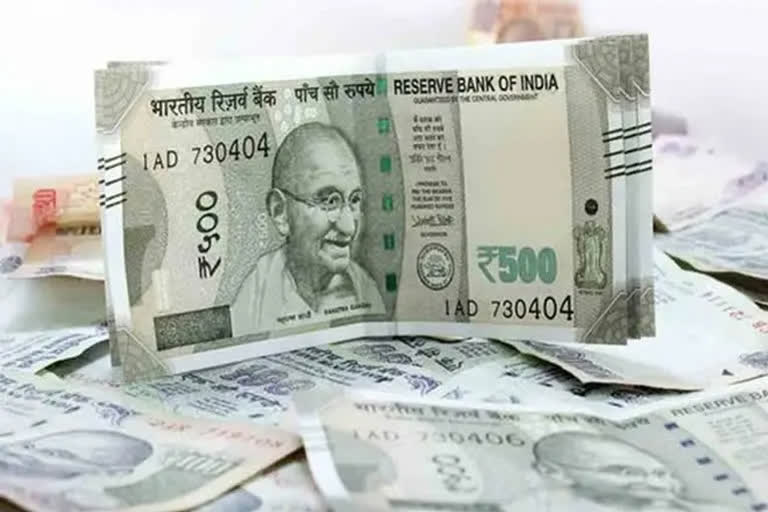New Delhi: While announcing the excise duty cut on petrol by Rs 8 per litre and Rs 6 per litre on diesel, Finance Minister Nirmala Sitharaman also highlighted the loss to the exchequer as a result of this major decision. The loss to the government has been estimated at Rs 1 lakh crore in the current financial year. In the case of the Central government, excise duty earnings from the petroleum sector form the bulk of the Union government’s excise duty collection. For instance, the Centre collected Rs 3.74 lakh crore in excise duty from the petroleum sector in FY 2020-21. And for the first nine months of the last financial year (FY 2021-22), as per the provisional data shared by the government, the excise duty collection has been estimated at Rs 2.63 lakh crore. Though as per the revised estimates presented in this year’s budget, the Centre’s excise duty collection in the last year was estimated at Rs 3.94 lakh crore.
However, after cutting the excise duty on petrol by Rs 5 per litre on petrol and by Rs 10 per litre on diesel in November 2021, Finance Minister Nirmala Sitharaman expected excise duty collection for FY 2022-23 to come down by Rs 59,000 crore. While the revised estimate of excise duty collection for FY 2021-22 has been estimated at Rs 3.94 lakh crore, the budget estimate for the current financial year pegs the excise duty collection at Rs 3.35 lakh crore.
If Nirmala Sitharaman’s budget estimates turn out to be true then the excise duty collection would decline from the budget estimate of Rs 3.35 lakh crore to Rs 2.35 lakh crore, a significant dent in the revenue collection at a time when the government is struggling to augment its revenue collection to meet the increased expenditure on account of the welfare measures announced in the wake of Covid-19 global pandemic.
States to be affected too
The Centre’s decision to cut excise duty by Rs 8 litre on petrol and Rs 6 litre on diesel will not only impact the Centre’s revenue collection. It will impact the states as well in two ways. First, the share of states in Central taxes will decline proportionately. As per the Finance Commission formula, states receive a 41% share from the divisible pool of the Central taxes as per the devolution formula recommended by the 15th Finance Commission. As per a back of the hand calculation, states would collectively lose over Rs 41,000 crore as their share in the Centre’s excise duty collection for the current year.
Moreover, the centre would also lose additional revenue on account of reduced VAT collection subsequent to excise duty adjustment. As per the price build-up formula, states levy their VAT or sales tax after oil marketing companies (OMCs) apply the excise duty on the factory gate price of petrol and diesel and also add the dealer’s commission.
Though the base price for petrol and diesel would decline by Rs 8 and Rs 6 litre respectively, but the overall price reduction would be Rs 9.5 per litre and Rs 7 per litre as reported by Finance Minister Nirmala Sitharaman. This additional decline of Rs 1.5 per litre on petrol and Rs 1 litre in diesel prices will be on account of the base price for states coming down as per the price build-up formula.
However, it is difficult to calculate the precise loss to states' exchequer at this stage as some states may add additional duties and taxes to cover the loss of Rs 1.5 per litre on petrol and Rs 1 litre on diesel while some other states, particularly those seven states that did not reduce their taxes in November last year may cut their tax rates to give additional relief to consumers as urged by the Prime Minister and the Finance Minister.
Also read: Petrol price cut by Rs 9.5/L, diesel by Rs 7/L after govt cuts excise duty



